Fulfilling God’s Dreams in Zambia
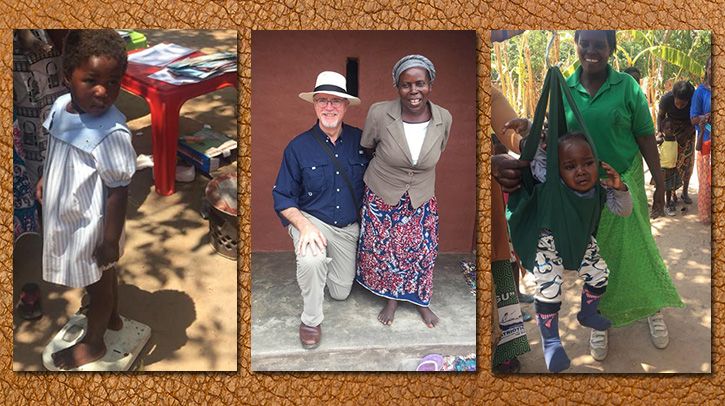
One of the great and humbling honors of serving Episcopal Relief & Development is the opportunity I have to visit our work around the world. In April, I led a pilgrimage of friends and supporters to Zambia to learn about our work with children.
For the last several years we have worked with the Zambian Anglican Council Outreach Program (ZACOP) to establish nearly 70 Early Childhood Development Centers across the country. We’ve focused on the most vulnerable children—those impacted in one way or another by HIV/AIDS. To date we’ve served over 10,000 children. We’re scaling the work up over the next three to five years.
What I love about this program is that it speaks both to my head and my heart.
There is rigorous science that shows that if you can ensure a healthy start for a child from zero to three, and ideally up to age six, the long-term payoff is tremendous in terms of overall health, intellectual development and lifetime productivity. On the other hand, if you miss those first critical years, that child can never catch up to become everything that God has dreamed for that child.
The work we are doing with ZACOP addresses those first years with integrated approaches supporting early childhood development, child health, nutrition & food security and family livelihood.
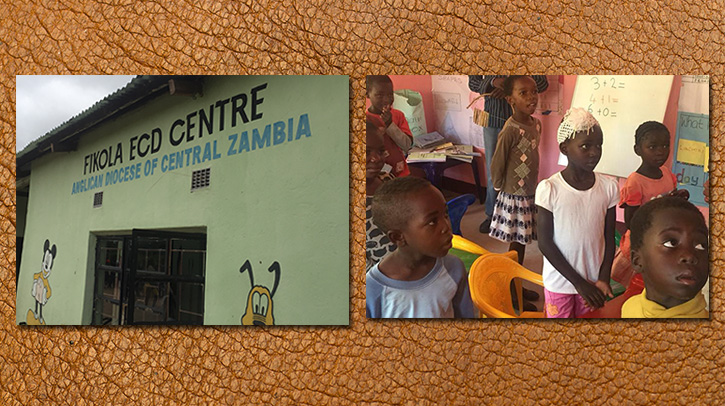
In Zambia, we visited the Fikola Early Childhood Development Centre in the Anglican Diocese of Central Zambia. As we pulled up to the Centre we were greeted by a welcome song and traditional dance performance with wonderful drums. We then toured the Centre—meeting the children and their teachers. We observed a preschool class focusing on basic learning skills—language, math, etc.
We then watched as young children were weighed to ensure that they were meeting appropriate growth targets and had received appropriate vaccinations.
A group of aspiring chefs showed off some of the dishes they were teaching their neighbors and friends how to ensure a diverse and nutritious diet. We saw a toy-making workshop. We sat in on a women’s savings and education session and observed how young mothers and other caregivers were pooling resources and investing in small businesses to strengthen their ability to support their families.
Once our visit to the Centre was complete, we broke into groups of three and accompanied local Early Childhood Development (ECD) promoters as they did house visits. I was assigned to accompany Catherine, a community ECD volunteer.
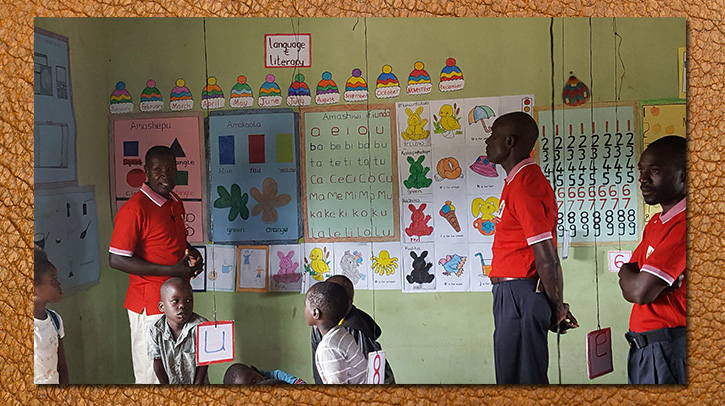
We called on a woman by the name of Beatrice. Beatrice is the primary caregiver to three grandchildren. She invited us to sit under the tree in her compound while she and Catherine talked about how things were going. Catherine demonstrated how she uses educational and visual aids to teach Beatrice about how to raise her grandchildren in a way that allows them to become everything they are meant to be.
The lesson I observed was on children’s rights. This is a concept that was foreign to Beatrice—not through any malice—but simply because she’d never thought about it. Catherine shared with Beatrice why it was important for Beatrice to stand up for the rights of her grandchildren—including birth registration—so that her grandchildren could access all of the health and educational benefits to which they were entitled.
Catherine also took the opportunity to share with Beatrice some thoughts about corporal punishment and why using violence to discipline children had long-term detrimental effects on a child’s development.
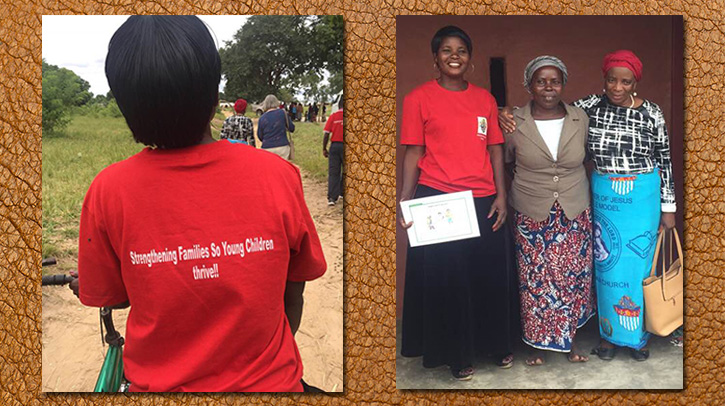
The conversation was friendly and light—neighbor-to-neighbor, friend-to-friend, peer-to-peer.
Beatrice said she would think about everything that Catherine had shared with her and Catherine said she’d check back with Beatrice in a few weeks when she made her next home visit.
After the conversation was over, Beatrice showed me around her compound. It consisted of about four structures—all neat and tidy. One of the lessons that Catherine had taught her was the importance of keeping the compound clean so that it was a safe place for children to play and so mosquitoes did not breed.
Beatrice had installed a hand-washing station by her latrine and was making soap out of ash. She was also breeding chickens, pigeons, and goats as a source of protein and income. Beatrice invited me into her home and showed me the malaria net the program had provided for her and her grandchildren.
As we bade farewell to Catherine and Beatrice I was struck by the transformational power of the work being accomplished. By focusing on strengthening families we are creating an opportunity for children to thrive and become everything that God dreams they can be.
Images: Top—Collage (left)A child at Fikola ECD Center is weighed, (middle) Rob Radtke and community volunteer, (right)A child at Fikola ECD Center is weighed; Middle 1— (left) Fikola ECD Center sign, (right) Children inside the Fikola ECD Center; Middle 2—Steering Committee members explaining Literacy & Language corner; Middle 3—(left) The back of Catherine’s shirt reads “Strengthening Families So Young Children Thrive!” (right) Cathering, Beatrice and other community granny gather for a photo.
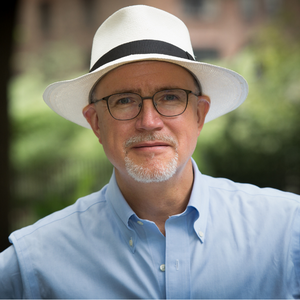 |
Rob Radtke is the President & CEO at Episcopal Relief & Development. |


